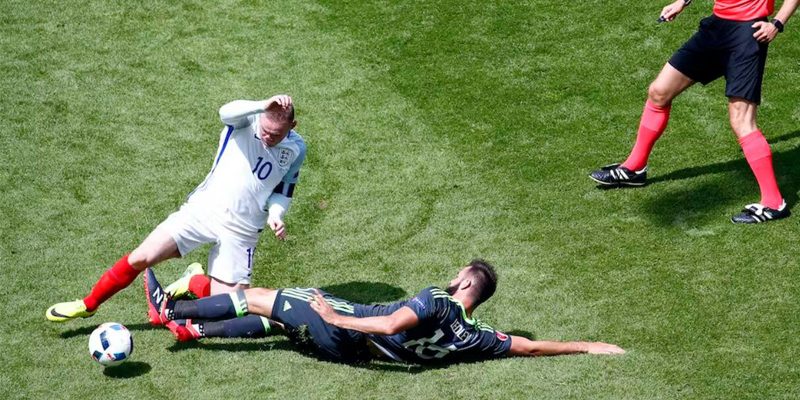
How To Deal With Injured Players During The Game As A Soccer Referee?
Injury is part of the game although no one wants to see the players get injured. As a soccer referee, it’s important to prioritize the safety and well-being of all players on the field, including those who may have sustained injuries during the game. Referees must take action once the players get injured during the game.
Here are the steps the referee should do after the players get injured in the game.
- Stop play
If you notice that a player is injured, blow your whistle immediately to stop play. This will give the injured player the opportunity to receive medical attention without any further risk of injury.
why it is important to stop the play immediately after the injury happens?
There are 4 reasons why referees need to stop the play after players get injured.
- Safety: The safety of the players is the top priority in soccer. If a player is injured, continuing to play could put them at risk of further injury. Stopping the game allows for the injured player to receive immediate attention and for the situation to be assessed for safety.
- Fair play: If play continues while a player is injured, it can give an unfair advantage to one team. For example, if a player is down and injured near their own goal, the opposing team could take advantage of the situation to score a goal. Stopping play ensures that the game is played fairly and without taking advantage of injured players.
- Respect: Stopping play when a player is injured shows respect for the injured player and their health. It also shows that the officials and the other players care about the well-being of their fellow athletes and prioritize their safety.
- Protocol: Stopping play is part of the standard protocol for dealing with injuries in soccer. It ensures that the necessary medical attention is provided and that the game can be restarted appropriately, according to the rules of the game.
- Assess the situation and call for medical assistants
Soccer is a physically demanding sport that requires a lot of running, jumping, and sudden movements. As a result, soccer players can be prone to a variety of injuries during a match, including:
- Sprains and strains
- Contusions
- Cuts and abrasions
- Head injuries
- Fractures
- Overuse injuries
Once the players get injured on the field, Referees should approach the injured player and assess the severity of the injury. If the injury is serious or if the player is unconscious, call for medical assistance immediately.
- Assist the player
If the injury is not serious, you may be able to assist the player yourself. Help the player to a seated or lying position, and check for any obvious signs of injury, such as bleeding or broken bones. Reassure the player and keep them calm while waiting for medical assistance.
- Restart play
Once the injured player has been removed from the field or is able to continue play, restart the game with a drop ball or a free kick, depending on where the ball was when play was stopped.
